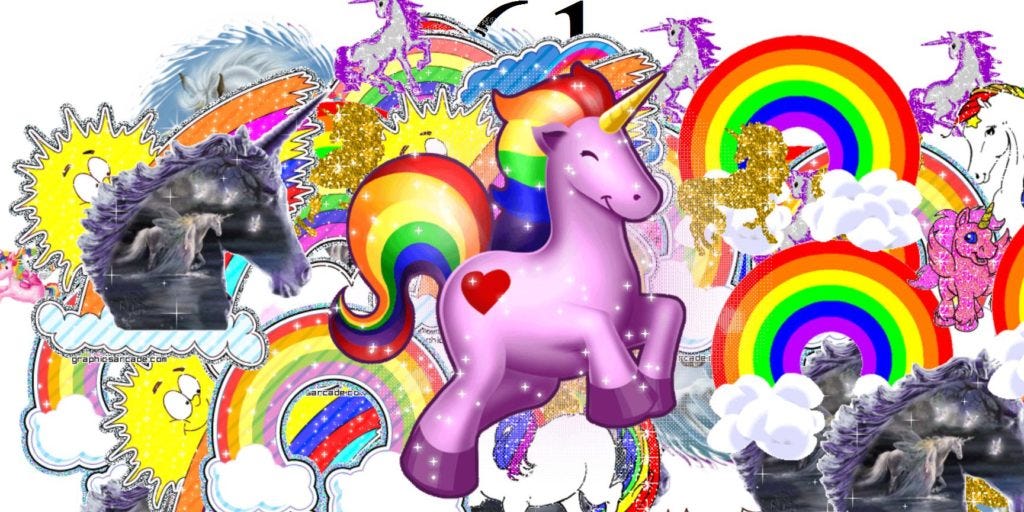Monopolize the Pretty Lies
Why do dictators deny people the right to speak freely? The obvious response is, “The truth hurts.” Dictators are bad, so if people can freely speak the truth, they will say bad things about the dictator. This simultaneously wounds dictators’ pride and threatens their power, so dictators declare war on the truth.
But is this story right? Consider: If you want to bring an incumbent dictator down, do you really want to be hamstrung by the truth? It’s far easier – and more crowd-pleasing – to respond to a pack of official lies with your own pack of lies. When the dictator claims, “I’ve made this the greatest country on earth,” you could modestly respond, “Face facts: we’re only 87th.” Yet if it’s power you seek, you might as well lie back, “The dictator has destroyed our country – but this will be the greatest country on earth if we gain power.” Even more obviously, if the current dictator claims the sanction of God, the opposition doesn’t want to shrug, “Highly improbable. How do you even know God exists?” Instead, the opposition wants to roar, “No, God is on our side. Our side!”
What then is the primary purpose of censorship? It’s not to suppress the truth – which has little mass appeal anyway. The primary purpose of censorship is to monopolize the pretty lies. Only the powers-that-be can freely make absurdly self-aggrandizing claims. Depending on the severity of the despotism, you may not have to echo the official lies. But if you publicly defend alternative absurdly self-aggrandizing claims, the powers-that-be will crush you.
Why, though, do dictators so eagerly seek to monopolize the pretty lies? In order to take full advantage of their subjects’ Social Desirability Bias. Human beings like to say – and think – whatever superficially sounds good. Strict censorship allows rulers to exploit this deep mental flaw. If no one else can make absurd lies, a trite slogan like, “Let’s unite to fight for a fantastic future!” carries great force. Truthful critics would have to make crowd-displeasing objections like, “Maybe competition will bring us a brighter future than unity,” “Who exactly are we fighting?,” or “Precisely how fantastic of a future are we talking about?” A rather flaccid bid for power! Existing rulers tremble far more when rebels bellow, “Join us to fight for a fantastic future!”
George Orwell has been a huge influence on me. When you read his political novels, you often get the feeling that dictators fear the truth above all. If only Winston Smith could take over the Ministry of Truth and tell all Oceania that it needlessly lives in poverty and fear. In the broad scheme of things, however, unvarnished truth is only a minor threat to tyranny. After all, rulers could respond to ironclad fact with a pile of demagoguery: “Smith is slandering our great country!” “He’s a willing tool of Eurasia!” Or even, “We’re not rich because the greatest country in the world is too proud to sell itself.” The real threat to the regime would be a rival set of demagogues offering Utopia after a brief bloodbath sends a few wicked, treasonous leaders straight to the hell that they so richly deserve.
Doesn’t this imply that free speech is overrated? Yes; I’ve said so before. While I’d like to believe that free speech leads naturally to the triumph of truth, I see little sign of this. Instead, politics looks to me like a Great Liars’ War. Viable politicians defy literal truth in virtually every sentence. They defy it with hyperbole. They defy it with overconfidence. They defy it with wishful thinking. Dictators try to make One Big Political Lie mandatory. Free speech lets a Thousand Political Lies Bloom.
Yes, freedom of speech lets me make these dour observations without fear. I’m grateful for that. Yet outside my Bubble, dour observations fall on deaf ears. Psychologically normal humans crave pretty lies, so the Great Liars’ War never ends.
The post appeared first on Econlib.



The idea that free speech leads directly to truth is, itself, something of a pretty ... falsehood.
A conceit.
But censorship very definitely suppresses truth. Whatever it is.
Even if the output of free speech is just a lie from the other-side, it enables more rapid error correction in similar ways to the messy market creates increased wealth.